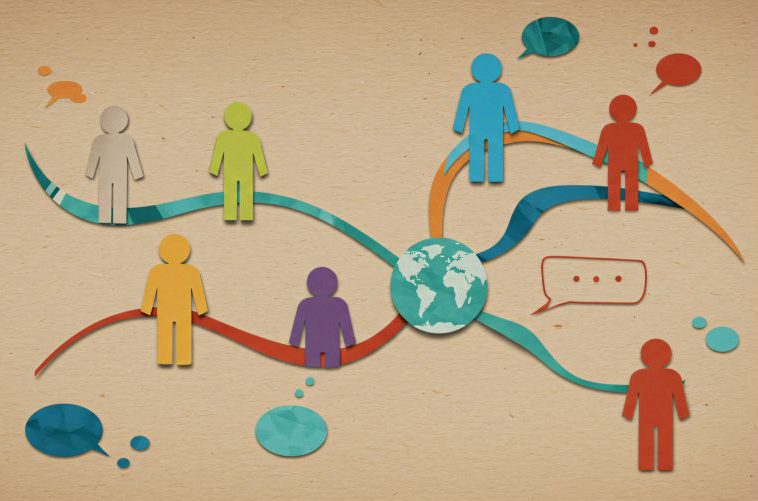
How one person (even a kid) can be a changemaker and make a lasting impact
Posted by
We all want our kids to be happy, healthy, and prosperous. But deep down, don’t we also hope they’ll make a difference? In a complicated world with complex challenges like climate change and social injustice, it’s easy for teens (and, frankly, us parents) to feel small and powerless.
“What can I do?” your teen might ask, while scrolling through headlines that scream gloom and doom.
The answer, fellow parents, is everything.
Here’s the secret: every single massive, incredible movement, every groundbreaking invention, every shift in human consciousness started with one person. One person with an idea, a passion, the courage to take that first step. Your kid has that potential within them right now.
Could you focus on raising the next superstar activist? Sure. But what I’m really talking about is helping your kiddo cultivate the mindset, skills, and belief that their individual actions really matter. You can empower them to be changemakers, whether that impact is felt down the street or across the globe.
What does it mean to be a ‘changemaker’?
Forget superhero capes or flashy headlines. Changemakers don’t have to be celebrities or politicians. Changemakers are people who:
- Identify a problem or opportunity for improvement. They see something that’s not working or could be better.
- Take the initiative to address it. They don’t complain; they act.
- Create a positive impact. Their actions lead to a noticeable, beneficial shift for their family, colleagues, community, or, yes, the planet.
Changemakers come in all shapes, sizes, and ages. They might be innovators, advocates, organizers, or caregivers. Their impact may be local, national, or global, but it always starts with the belief that their efforts can make a difference.
Meet some modern changemakers
Sometimes, seeing is believing. Let’s look at a few individuals who started with an idea and are now shifting paradigms, from their local communities to the international stage.
Lucie Basch: Waging a war on food waste
Imagine looking at perfectly good food that restaurants, grocery stores, and bakeries toss every day because it’s perishable and thinking, “There has to be a better way.” Enter Lucie Basch. She worked in the food industry for Nestlé and saw firsthand the amount of edible food going to waste each day.
Her solution? Creating an app called Too Good to Go, which connects consumers with restaurants and stores that have surplus, perishable food at the end of the day. You can buy “surprise bags” at steep discounts. This solution helps people find inexpensive food while keeping it out of landfills. What started as a simple idea in Denmark has exploded into the world’s largest marketplace for extra food, operating in multiple countries and saving millions of meals from the garbage.
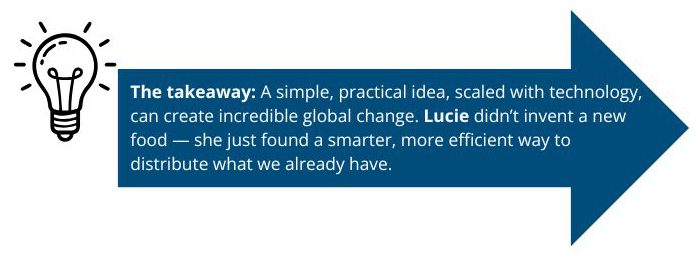
Selena Gomez: Normalizing mental health
From child star to global icon, Selena Gomez tried focusing on her acting and music careers. But after her own public struggles with mental health, she chose to leverage her platform to bring awareness to a deeply personal cause.
Selena launched the Rare Impact Fund through her beauty brand, Rare Beauty. This nonprofit is dedicated to increasing young people’s access to mental health resources. By sharing her own experiences, Selena has destigmatized mental health conversations and funds critical services for those who need it most — wherever they live in the world.
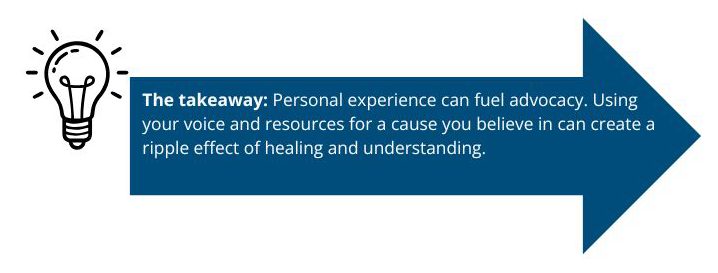
Héctor Bellerín: The eco athlete
Professional footballer Héctor Bellerín, who plays for Real Betis Balompié, might be best known for his skills on the field, but he’s also a vocal advocate for environmental sustainability. He uses his visibility to highlight the urgent need to protect our planet.
Héctor partnered with initiatives like Forever Green to fight deforestation and co-founded clothing label Gospel Estudios, which champions ethical practices by using deadstock materials and a transparent supply chain. He shows that passion for change can intersect with any profession.
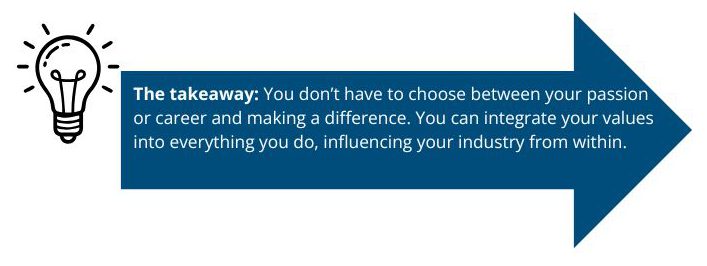
Everyday changemakers: The kid next door
Let’s not forget the changemakers who didn’t start on Instagram, like Marley Dias. As a 6th grader, she was frustrated that the only options for her to read at school were “books about white boys and dogs.” She began a book drive, #1000BlackGirlBooks. Her goal? Collecting and donating 1,000 books featuring Black female protagonists. When she was 14, she wrote Marly Dias Gets It Done: And So Can You!, a book about activism, equity and inclusion, social justice, and volunteerism.
Flint, MI, resident Amariyanna “Mari” Copeny became an activist at age 8 after writing a letter to President Obama about the lead in her hometown’s water supply. She later partnered with Hydroviv to start the Little Miss Flint Clean Water Fund to maximize the impact of donated funds by providing water filters, which eliminate the single-use plastic waste associated with bottled water.
Driven by a simple question for his school science fair — how do blind people read? — and learning that they rely on expensive, clunky equipment to create accessible reading materials, 13-year-old Shubham Banerjee found a mission. Using his love of building LEGO models, he invented Braigo, a low-cost Braille printer that uses raised dots to print text. He’s currently a college student at UC Berkeley and running Braigo Labs, the company he founded to produce these printers.
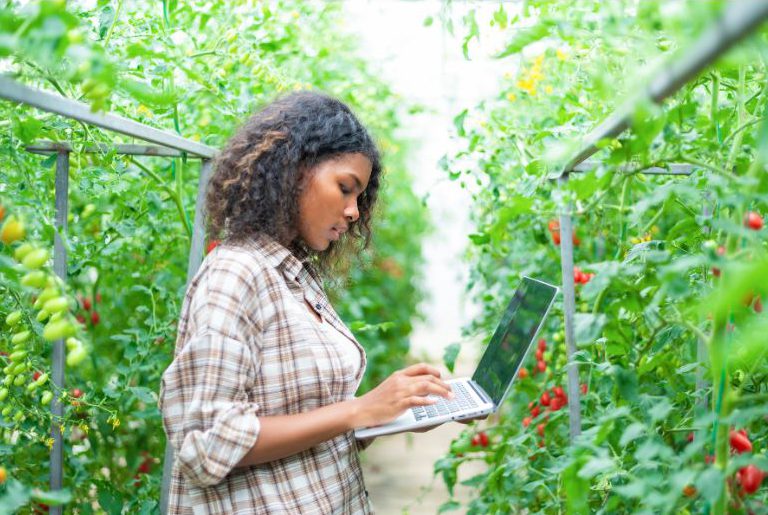
The changemaker’s toolkit
Your teen’s idealism is a precious resource, but turning that fire in their belly into sustainable action requires tools. Here’s how to help them balance their big dreams with concrete skills.
 Identify the spark. What annoys or inspires them?
Identify the spark. What annoys or inspires them?
Ask guiding questions. Instead of “What do you want to change?” try “What breaks your heart?” or “What specific injustice really bothers you?” or even “What’s something you see that just doesn’t make sense?” Their answer could be anything from plastic pollution to unfair school policies, or a lack of resources for a specific group.
Connect their answer to their passions. If they love animals, maybe they research animal shelters. If they’re into gaming, perhaps they can explore how gaming communities can raise money for different causes. The more connected to their existing interests, the more likely they’ll stick with it.
 Research, research, and do more research.
Research, research, and do more research.
The power of information isn’t something we can understate. Once your teen identifies an annoyance or inspiration, encourage them to dig deeper. What are the root causes of the issue? Who else is working on it? What are the different perspectives?
Guide them toward credible resources of information, like academic papers, reputable news organizations (BBC, NPR, Associated Press), nonprofit organizational reports, not just viral social media posts. This strategy helps them understand the complexity of their issue and avoid misinformation.
 Start small, think big.
Start small, think big.
There’s nothing wrong with incremental steps. The idea of “changing the world” can cause paralysis. Help your teen break down a big problem into manageable, actionable steps. Instead of “ending homelessness,” maybe they organize a coat drive for the local shelter.
The power of one is real. A simple, single mission can evolve into something much greater, even when it starts with one person or a small group of friends.
 Collaboration is key.
Collaboration is key.
Encourage your teen to team up with like-minded peers, teachers, or community leaders. Change is rarely a solo sport. Working with others amplifies impact, provides support, and teaches crucial teamwork skills.
Emphasize the importance of listening to diverse perspectives, especially from those directly affected by the problem your teen is trying to solve. Empathy and humility are key, too.
 Cultivate core changemaker skills and characteristics.
Cultivate core changemaker skills and characteristics.
These skills aren’t just for activists — they’re skills for life!
- Adaptability: The ability to adjust to new conditions; solutions rarely look exactly as planned.
- Communication: Clearly articulating ideas, listening actively, and persuading others. It includes written, verbal, and digital communication.
- Courage: Standing up for what’s right, even when it’s unpopular or difficult.
- Critical thinking: Analyzing information objectively, identifying biases, and forming reasoned judgments.
- Empathy: The ability to understand and share another’s feelings. It’s the bedrock of all meaningful change.
- Initiative: The power or opportunity to act or take charge before others do.
- Optimism (realistic): Believing in the possibility of positive change, while understanding the challenges involved.
- Problem-solving: The ability to identify issues, brainstorm solutions, and implement effective strategies.
- Resilience: The capacity to recover quickly from challenges; toughness. Change is hard, but setbacks are inevitable.
 Embrace failure as learning.
Embrace failure as learning.
Normalize setbacks because not every project will succeed. After all, Edison famously said, “I never once failed at making a light bulb. I just found out 99 ways not to make one.” Ideas fall flat. People may not respond. Things won’t go as planned. Help your teen see these situations as learning opportunities, not personal failures. What did they learn? What would they do differently next time? This introspection builds resilience.
Changemaking is often an interactive process. You try something, see what happens, adjust, and try again. Over and over — as often as it takes.
Your role? The empowering parent
You’re your teen’s most important coach and cheerleader.
- Listen to their ideas, even if they seem outlandish. Don’t immediately jump to “That’s too hard” or “You’re too busy.”
- Connect them with people, books, documentaries, opportunities, and resources related to their interests. Don’t do the work for them, but give them the tools.
- Show them how you, in your own life, try to make a positive impact, whether through ethical consumerism, sustainable living, local volunteering, or advocating for a cause.
- Celebrate the small wins and acknowledge their efforts, even if the impact feels minor. Every step counts.
The world needs your teen’s unique perspective, energy, and passion. By fostering a changemaker mindset, you’re preparing them for a successful future while helping them to build a better one for all. And what more lasting impact could a parent hope for?
Get more inspiration from our Guide to Global Impact.
Blog Categories
- Career Advice
- College Admissions
- Colleges & Universities
- Financial Aid and Scholarships
- For Counselors
- For Parents
- For Students
- Gap Years
- Mental Health and Wellness
- Online Learning
- Performing and Visual Arts
- STEM Majors and More
- Summer Programs
- Teen Volunteering
- Trade & Vocational Schools
- Tutoring & Test Prep

Organization with listings on TeenLife? Login here
Register for Free
We’re here to help you find your best-fit teen-centered academic and enrichment opportunities.
Forgot Password
"*" indicates required fields

 Identify the spark. What annoys or inspires them?
Identify the spark. What annoys or inspires them?



 Embrace failure as learning.
Embrace failure as learning.






